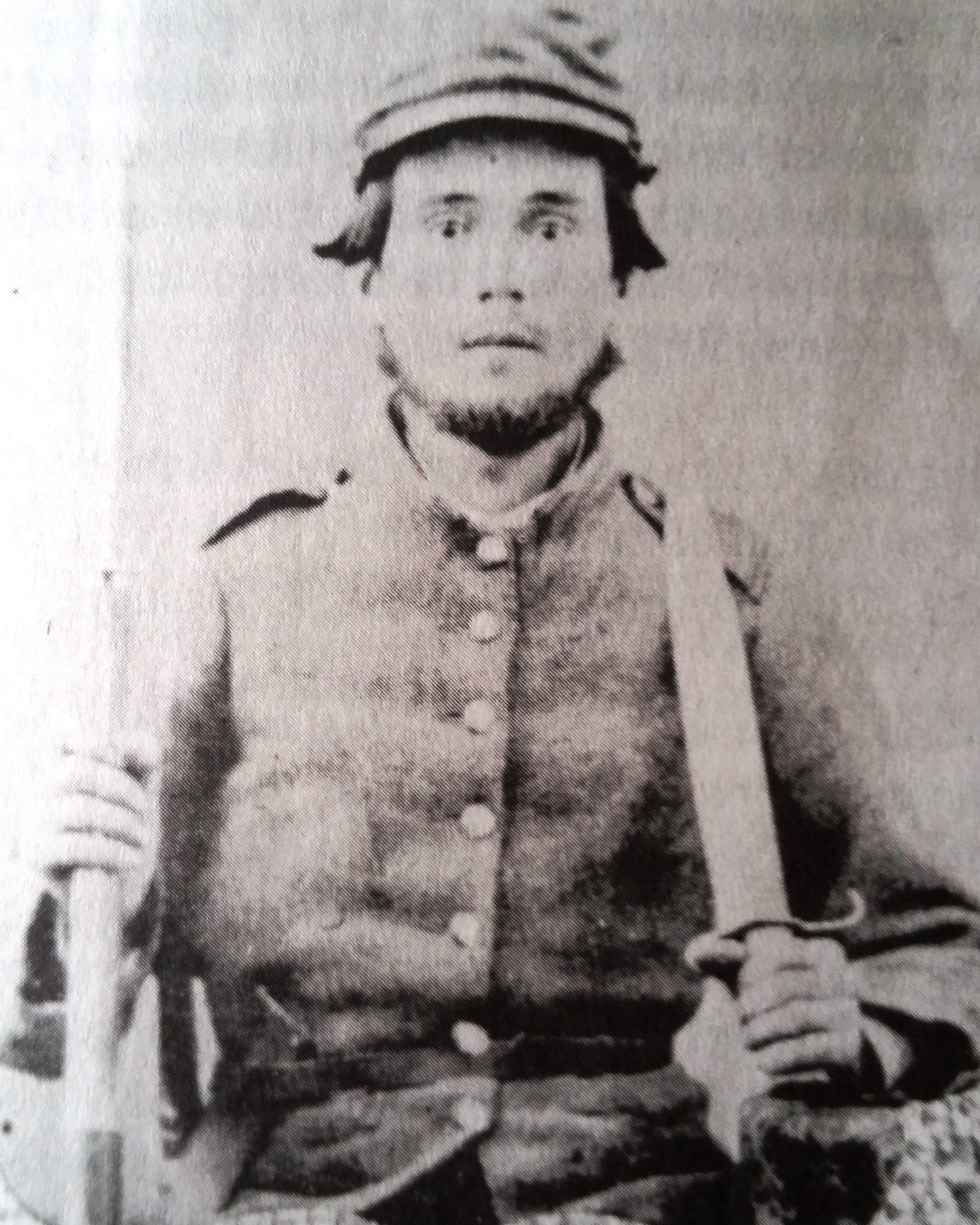The war ended for those bedraggled Confederate veterans who surrendered with General R. E. Lee’s at Appomattox Court House 150 years ago. But what about the Rebel soldiers who were locked away in the horrible Union prison camps with names like Elmira, Point Lookout and Fort Delaware to name a few? Well, their war continued as they fought disease, poor weather and inhuman prison guards.
My book Red Clay to Richmond, Trail of the 35th Georgia Infantry Regiment [2004] details this ugly situation in Appendix A which is titled “From Hell to Home.” Every few days I will post here several paragraphs that outline what happened to some of these 35th Georgians while in Federal hands. This is a story that is disgusting, yet you will not read about it in the mainstream sanitized history books.
As Lee’s army surrendered, some less fortunate soldiers fought for their lives and their humanity in
Union prisoner of war camps. For those Georgia Confederate men who were captured in the closing days of the Petersburg campaign – a new kind of hell on earth awaited them. Others like John Rigby had endured this hell for even longer. Rigby had been captured at the beginning of Grant’s Overland Campaign in May 1864. He endured the harsh New York winter of 1864-65 at Elmira only to succumb to disease less than a month after the Appomattox surrender. Federal officials logged, “One blanket, one vest, one shirt, and one pair of pants,” as his remaining possessions at his death. Rigby had used these few items for protection during the previous winter when the thermometer frequently dropped below zero degrees.
Rigby from Company D out of Troup County had been captured at the Battle of the Wilderness, but he was listed as missing in action on the 35th Georgia Infantry Regiment’s muster rolls. A total of 23 of the 35th Georgians had been captured in this fight and all were listed as MIA. Conditions at Elmira were so stark that the prisoners referred to the place as Hellmira because it would have the highest mortality rate [24.3%] of all Union prisons. Ten of these twenty-three Georgia Confederates would die in prison.
Rigby’s wife, Nancy, never knew what had happened to her husband. Since Rigby was the only member of his company captured at the Wilderness, his family never learned of his exact fate. His wife always believed he would come home and she refused to apply for a government veteran’s pension until 1893. She died in 1897. The family buried her at Liberty Cemetery in Bremen, Georgia, with an empty spot next to her grave – for John – should he ever return.
The next post will outline how Rigby’s Georgia descendants honored his memory
NOTES
*Above info via Rigby Family records courtesy of Mr. Mark Pollard, McDonough, Ga.
*Elmira death stats comes from Elmira: Death Camp of the North by Michael Horigan, 2002, Stackpole Books, p. 193.


my gr gr gr uncle William Jefferson Head was Captain of Co A of the 35th. His brother in law, my gr gr grandfather Frances Marion Head was in Co H of the 1st Ga Cavalry which I understand was assigned to the 35th.
Thank you for contacting me. As you are probably aware my book ‘Red Clay to Richmond” notes the controversy that swirled around Captain Head pertaining to his $200 loan to some of his men and then his resignation from the army. Do you have anymore info or images of your uncle? Also, your ending comments appear to have been cut off on your post
WC Windom – I now see the rest of your comment. I am not aware that the 1st Georgia Cavalry was assigned or attached to the 35th Georgia.
I’m in the William Thomas overby camp of the Sons of Confederate veterans . My Great Great Great grandfather Mansfield Bailey from Troup county was in company D 35th Ga. He was 40 years old when he joined and was shot through both thighs at Fredericksburg Va. I’m curious if anybody out there may have a picture of him
I just learned that one of my ancestor’s sons was in Company K of the 35th. His name was Archibald Dollar. He was captured at Petersburg on April 2nd 1865. He was from Harris County, Georgia. He was paroled from Ft. Delaware and was sick in hospital with dysentery. He survived the war and came back to Hamilton, Harris County, Georgia. He was still living there in 1900. He was apparently never married. He was single in, 1870, 1880, and 1900. What can you tell me about him or the activity of this company in the 35th. Thanks. I just learned of your book. I am an SCV member in the Dekalb Rifles in Dekalb County, Alabama.
My 3rd great grandfather, Pvt. William Henry Strickland, fought in Co. E and was captured July 2nd, 1863 at Gettysburg. He was sent to Fort Delaware prison where he stayed until relieced in Feb., 1865.
That is my great-great-great grandfather. He was first wound at the Battle of Gaines Mill (located today in Mechanicsville, VA). I’ve relic hunted (by permission) on several farms where the battle occurred. My cousins did a lot of research and helped get his remains disinterred and returned from New York.
Researching my great great grandfather James Allen. Was believed to be in the 35th Georgia infantry .got hurt and captured in Petersburg Va. Survived as a pow in a union camp. Do you have any info or where I can find some.
Looking for information on my great great grandfather James Allen 35th Georgia infantry Co F